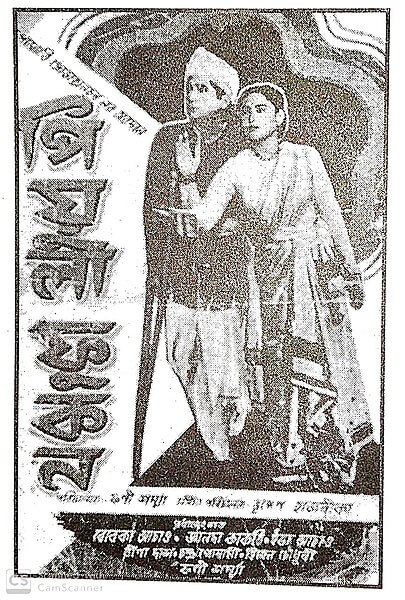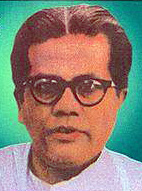Piyoli Phukan is remembered as a remarkable figure in the history of India’s fight for independence, especially in Assam. His story is one of extraordinary courage and determination, as he became a symbol of resistance against British colonial rule. This article sheds light on his life, his defiance of oppression, and his enduring legacy.
Early Life and Family Background
Born into a family with a controversial legacy, he was the son of Badan Borphukan, a significant yet infamous figure in Assamese history. His father’s decision to ally with the Myanmar army to overthrow the Ahom king in the 18th century led to severe turmoil in Assam. This alliance resulted in widespread destruction by the invading forces and ultimately paved the way for British interference in the region.
The actions of his father inadvertently set the stage for British rule in Assam. Under the pretense of protecting the region from Myanmar’s atrocities, the British soon took control of its administration. This historical backdrop played a crucial role in shaping his life and fueling his eventual rebellion against colonial powers.
The British Takeover and Assam’s Response
The Treaty of Yandabu, signed in 1826, marked the beginning of British rule in Assam. Although the treaty brought an end to Myanmar’s aggression, it also signaled the loss of Assam’s independence. The local aristocracy, including influential figures of the time, largely submitted to British authority.
However, he stood apart. Unlike many of his contemporaries, he refused to accept British dominance. Despite being physically handicapped, he emerged as a fearless leader, determined to organize resistance against the colonial rulers. His unwavering commitment to Assam’s freedom made him a revered figure among the people.
The First Uprising Led by Piyoli Phukan
He was the first leader in Assam to mobilize a mass uprising against British rule. His leadership demonstrated remarkable courage and resourcefulness. Despite his physical challenges, he managed to inspire people and rally support for the freedom movement.
One of his most daring acts of defiance was his plan to attack a British firearms godown. This audacious scheme was meticulously crafted with the help of local supporters. The plan, if successful, would have dealt a significant blow to British control in the region.
Unfortunately, the British were tipped off about the plan. Acting on this information, they arrested Piyoli Phukan and his associates. His arrest marked a turning point in Assam’s early freedom struggle.
Trial and Execution
Following his arrest, Piyoli Phukan was subjected to a highly publicized trial. Despite the intense pressure and the risk to his life, he remained resolute in his commitment to the cause of independence.
On July 26, 1830, he was sentenced to death by the British authorities. He was hanged for his unwavering patriotism and his role in organizing resistance against colonial rule. His martyrdom became a symbol of inspiration for the people of Assam and beyond.
The Legacy of Piyoli Phukan
His sacrifice did not go in vain. His courage and determination laid the foundation for future resistance movements in Assam. His story became a source of inspiration for subsequent generations of freedom fighters, who carried forward the struggle for independence.
Piyoli Phukan in Assamese Cinema
In 1955, Assamese filmmaker Phani Sharma brought his story to life on the silver screen. The movie, titled Piyoli Phukan, was a significant milestone in Assamese cinema. It became the first Assamese film to win a National Award, receiving the prestigious “Certificate of Merit.”
The film not only highlighted his heroic deeds but also introduced audiences to the rich cultural and historical heritage of Assam. The famous song Tejore Kamalapati by legendary musician Bhupen Hazarika, featured in the film, remains popular to this day. This song is a testament to the enduring impact of his story on Assam’s cultural identity.
Why Piyoli Phukan’s Story Stands Out
His contribution to the freedom struggle is unique for several reasons:
- Early Rebellion: He was one of the first leaders in Assam to organize a rebellion against British rule, setting an example for others to follow.
- Physical Challenges: Despite being physically handicapped, he demonstrated extraordinary courage and leadership, proving that determination can overcome any obstacle.
- Cultural Impact: His story transcended history and became a part of Assam’s cultural legacy through literature, cinema, and music.
- Martyrdom: His execution made him a martyr and a symbol of resistance, inspiring future movements against colonial oppression.
Commemorating Piyoli Phukan
Today, he is remembered as a national hero and a pioneer in Assam’s freedom struggle. Schools, streets, and institutions across Assam are named in his honor, ensuring that his legacy continues to inspire the youth.
His story serves as a reminder of the sacrifices made by countless individuals in the fight for India’s independence. By honoring Piyoli Phukan, we pay tribute to the indomitable spirit of those who refused to accept subjugation and fought tirelessly for freedom.
Conclusion
His life is a testament to the power of resilience, determination, and patriotism. His story is not just about a single individual’s fight against injustice but also about the collective spirit of a people determined to reclaim their freedom.
As students and citizens, we must remember and learn from the sacrifices of leaders like Piyoli Phukan, whose courage and vision continue to inspire generations. Let his story remind us of the importance of standing up for what is right, no matter the odds.
FAQ’s:
Q 1. Who was Piyoli Phukan?
He was a prominent freedom fighter from Assam, known for organizing one of the earliest uprisings against British colonial rule in the region.
Q 2. What was Piyoli Phukan’s family background?
He was the son of Badan Borphukan, who played a controversial role in Assam’s history by inviting the Myanmar army to dethrone the Ahom king.
Q 3. What role did he play in Assam’s fight for independence?
Piyoli Phukan led a people’s uprising against British rule and planned daring acts of resistance, such as the attempt to blow up a British firearms godown.
Q 4. When and why was Piyoli Phukan executed?
Piyoli Phukan was hanged by the British on July 26, 1830, for organizing resistance and his role in the anti-colonial movement in Assam.
Q 5. What is the significance of Piyoli Phukan in Indian history?
Piyoli Phukan is remembered as one of the earliest martyrs from Assam in India’s freedom struggle, inspiring future resistance movements in the region.
Q 6. What is the connection between Piyoli Phukan and the Treaty of Yandabu?
The Treaty of Yandabu, signed in 1826, marked the beginning of British rule in Assam. He opposed the British rule that followed this treaty and mobilized resistance.
Q 7. How is Piyoli Phukan remembered in Assamese culture?
Piyoli Phukan’s legacy is preserved through literature, cinema, and music. The Assamese film Piyoli Phukan (1955) highlights his life and contributions.
Q 8. What awards did the film Piyoli Phukan receive?
The film Piyoli Phukan, directed by Phani Sharma, was the first Assamese movie to win a National Award, receiving the “Certificate of Merit.”
Q 9. What is the famous song associated with Piyoli Phukan?
The song Tejore Kamalapati, sung by Bhupen Hazarika and featured in the movie Piyoli Phukan, is widely celebrated in Assamese culture.
Q 10. Why is Piyoli Phukan’s story important for students?
Piyoli Phukan’s life teaches valuable lessons in courage, patriotism, and the importance of standing up against injustice, making it an inspirational story for young learners.












